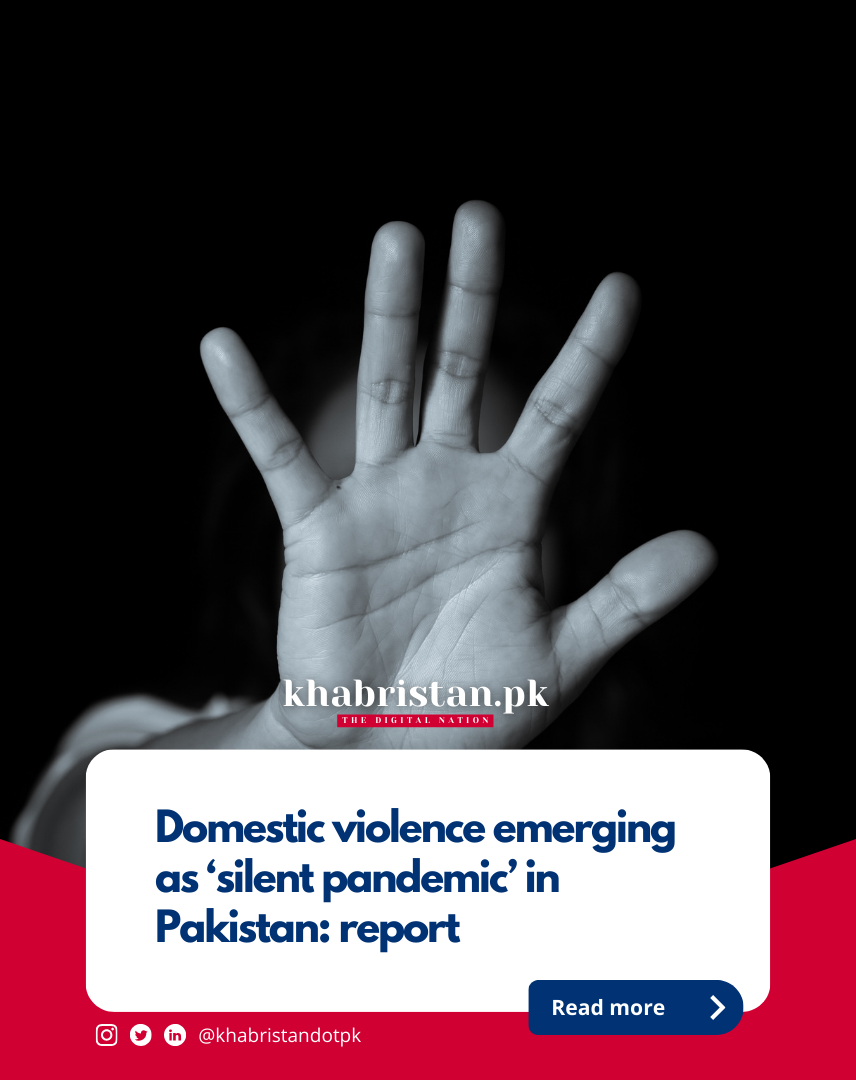A study by the Asian Development Bank highlights domestic violence as a “silent pandemic” in Pakistan during the COVID-19 crisis. The report reveals a surge in threats and physical assaults among spouses, with distressing statistics on physical harm within communities. It emphasizes the impact of the pandemic and the need for inclusive policies and social protection programs.

ISLAMABAD: A study report by the Asian Development Bank (ADB) has pointed out that domestic violence is emerging as a “silent pandemic” in Pakistan, posing a serious challenge to society and the state, ARY News reported.
The study report titled “Gendered Impacts of the Covid-19 Pandemic in Central and West Asia” highlighted the concerning surge of domestic violence in Pakistan during the COVID-19 pandemic, revealing a substantial increase in threats and physical assaults among spouses.
The report quoted a recent survey carried out in Punjab and Sindh, indicating an increase in incidence of threats of physical violence (40 per cent) and physical assault from spouses (46pc).
Additionally, the report revealed distressing statistics where a significant portion of surveyed women were aware of individuals within their communities facing physical harm from their husbands (14%), experiencing physical assaults (19%), and incidents where children were subjected to parental abuse (27%).
The study aims to shed light on the extent of the impact of the pandemic, highlighting initiatives and outcomes from policy and public investments, particularly ADB projects in nine of the ten countries in Central and West Asia (CWA): Afghanistan, Armenia, Azerbaijan, Georgia, Kazakhstan, Kyrgyz Republic, Pakistan, Tajikistan, and Uzbekistan. It stressed the lack of gender-disaggregated data in COVID-19 cases and deaths across the region.
According to the report, development partners in Pakistan also stressed that the rate of violence against women and girls (VAWG) increased significantly due to loss of livelihoods and restrictions, highlighting the importance of a change of narrative in the country.
It stressed the need for inclusive policies in agriculture-focused employment sectors for women, particularly in countries like Pakistan, Kyrgyz Republic, and Tajikistan. Policies related to land, agriculture extension services, and technology should be designed and implemented in gender-responsive ways, the ADB report stated.
The study report emphasised to develop social protection programmes that support unpaid caregivers and that avoid penalising women for this role.
The ADB report cited example of BISP in Pakistan and the programmes that are being implemented under its umbrella could benefit from a reflection on the opportunity of unconditional cash transfer systems that weaken gender stereotypes and that avoid creating additional care-related burdens for women.
A recent report has shed light on the troubling trend of domestic violence in Pakistan, labeling it as a ‘silent pandemic’ that is causing growing concern. The findings bring attention to the urgent need for greater understanding and action to address this issue. Domestic violence not only impacts the physical and mental well-being of individuals, but it also undermines the fabric of the entire society. It is crucial for all sectors of society, including government, NGOs, and individuals, to come together in solidarity to combat this pressing issue. By raising awareness, providing support services, and enforcing laws to protect victims, we can strive to create a safer and more equitable environment for everyone. Addressing these challenges requires a comprehensive and sustained effort from all stakeholders. Together, we can work towards a future where every individual in Pakistan feels safe, respected, and empowered within their own homes.
Source: ARY NEWS
Domestic violence, a “silent pandemic” in Pakistan, has surged during the COVID-19 pandemic, with a significant increase in threats and physical assaults among spouses. A recent survey in Punjab and Sindh revealed alarming statistics, including a rise in threats of physical violence and physical assaults. The report highlighted the lack of gender-disaggregated data in COVID-19 cases across the region and emphasized the need for inclusive policies in employment sectors for women. Development partners stressed the importance of a change of narrative and the implementation of gender-responsive policies. The study recommended the development of social protection programs supporting unpaid caregivers and the reflection on unconditional cash transfer systems to weaken gender stereotypes.
Disclaimer:
This content is AI-generated using IFTTT AI Content Creator. While we strive for accuracy, it’s a tool for rapid updates. We’re committed to filtering information, not reproducing or endorsing misinformation. – Khabristan.pk for more information visit privacy policy








Leave a Comment